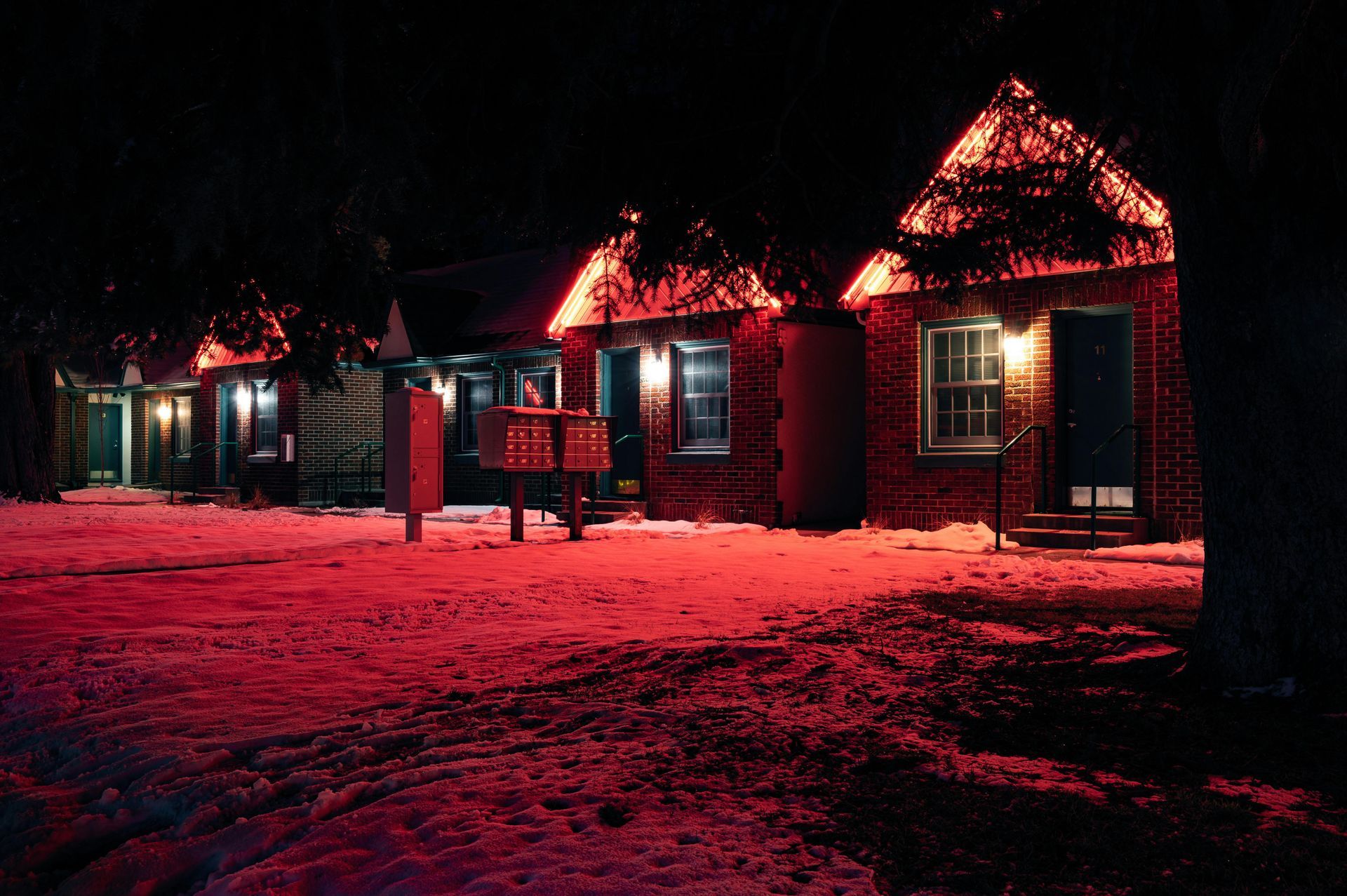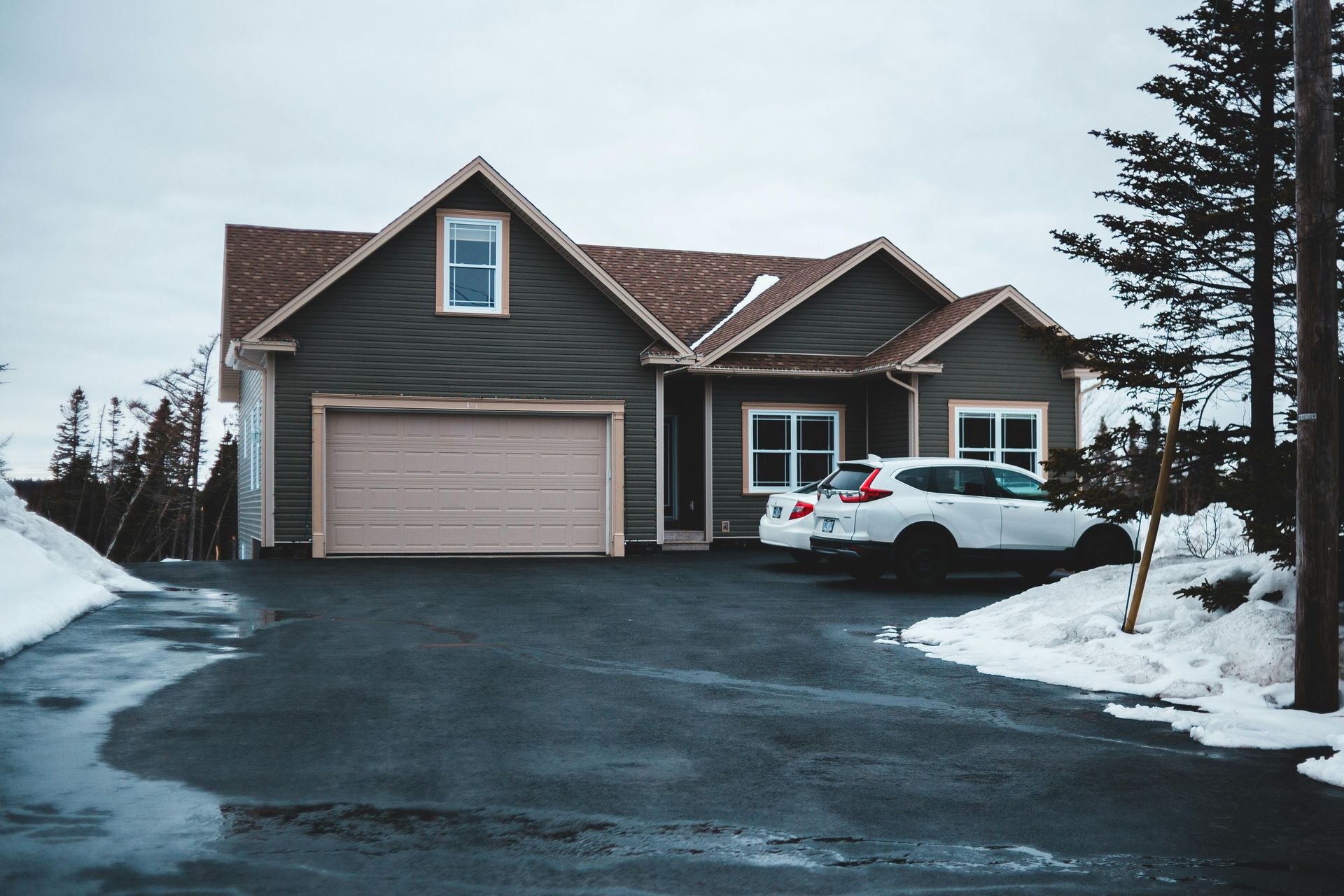Property Management Perspectives

Celebrating the holiday season comes with heartfelt cheers, merriments and of course... gift-giving! For landlords, it’s an opportune time to show appreciation to their tenants, further establishing a good rapport and letting them know they aren't just renters, but valued members of the property community. Here are some thoughtful and ideal gifts to present to your tenants during this festive period. 1. Gift Cards You can never go wrong with a classic. Gift cards are simple, flexible, and almost universally appreciated. Consider choosing something broad, like Amazon, or go local with a grocery store or neighborhood restaurant. A gift card to a local coffee shop adds a personal touch — especially nice if you know your tenants’ favorite spots. You could even gift a Netflix or streaming subscription for cozy winter nights in. The great thing about gift cards is that they let tenants treat themselves in whatever way they like best. 2. Customized Ornaments Personalized ornaments are a small but heartfelt way to make tenants feel at home. You could include their name, move-in year, or the property address for a fun keepsake. It’s a thoughtful detail that adds a personal touch and becomes part of their holiday décor — and every time they hang it up, they’ll remember your kindness as a landlord. 3. Holiday Baked Goods Few things say “happy holidays” quite like a box of baked goods. A tin of homemade cookies, brownies, or a festive pie can make your tenants feel genuinely appreciated. Not a baker? No problem. Support a local bakery or café and deliver a few beautifully packaged treats. Either way, it’s a warm, personal gesture that spreads joy (and great smells). 4. Gourmet Baskets If you want something a bit more polished, consider a gourmet gift basket. Fill it with snacks, chocolates, fruit, coffee, or wine — something your tenants can share with friends or family. It’s elegant, easy to put together, and perfect for showing gratitude. Bonus : you can tailor it to different tenants’ lifestyles — think cozy tea and blankets for one household or a snack basket for another. 5. Home Improvement Vouchers Practical gifts can be surprisingly appreciated. A Home Depot or Lowe’s gift card lets tenants take care of small upgrades or DIY projects they’ve been meaning to do. It’s a subtle way of saying, “I care about you making this space feel like home.” Even a modest voucher can empower tenants to personalize their space, and that often leads to longer, happier tenancies. 6. Personalized Calendars A custom calendar is both thoughtful and useful, especially if you include important local dates like trash pickup days, community events, or holiday closures. You could even highlight renewal dates or maintenance check-ins. It’s a great way to show you care about their day-to-day experience, not just the rent check. 7. Quality Housewares If you prefer a simple but stylish route, consider small home items like scented candles, cozy throw blankets, cute coasters, or a potted plant. These gifts are practical yet decorative, and they help tenants create a comfortable, inviting living space. It’s also a great option if you’re managing multiple properties — easy to buy in bulk but still feels personal. Remember, gift-giving is an act of kindness that reinforces your relationship with your tenant. It's the thought that counts, not the cost. So, consider these ideas and spread a wave of joy and gratitude towards your tenants this holiday season!

The holiday season can be a busy and sometimes stressful time, and as a landlord, it’s important to prepare your rental property for the unique challenges that come with it. Start by checking common maintenance concerns before the holidays arrive — ensure heating systems are in good shape, smoke detectors are working, and walkways are safe and clear to prevent accidents during winter weather. Sending out a quick seasonal reminder to tenants about proper use of heating, avoiding overloaded outlets, and keeping decorations safe can help prevent damage and reduce emergency calls. The festive season is also an opportunity to build goodwill with your tenants. A simple gesture like sending a holiday card, small gift, or even a kind message can go a long way in showing appreciation. Be mindful of increased guest activity by reminding tenants about parking, noise levels, and lease guidelines while also being flexible and understanding during this time of year. By combining proactive property care with thoughtful tenant communication, you can minimize problems and create a positive, stress-free environment for everyone during the holidays. Check back next week for some thoughtful and budget-friendly gift ideas to show your tenants appreciation during the holiday season!

Whether you're a new landlord or renting out your vacation home, enhancing your property's curb appeal can increase its rental value and attract more potential tenants. Good landscaping shouldn’t just look nice, it should be easy to maintain. Here are seven simple, low-maintenance landscaping ideas to help your rental stand out and stay beautiful all year long. 1. Choose Low-Maintenance Greenery This is a win-win for both tenants and landlords. Choose plants that require little maintenance, like juniper, lavender, or rosemary. These plants can adapt easily to different weather conditions, reducing the need for constant care. 2. Invest in Mulch Mulch around the plant beds can give the property a well-maintained appearance, plus it helps in weed management. Organic mulch also improves soil fertility as it decomposes over time. 3. Add Outdoor Seating An outwardly inviting property can attract potential renters. Setting up a simple patio or a garden bench within a landscaped garden can highlight an ‘outdoor living space’ potential and significantly increase curb appeal. 4. Install Outdoor Lighting Adequate outdoor lighting can make a significant difference. It not only illuminates the walkways ensuring safety, creating a cosy atmosphere but also highlights the beautiful features of your property. 5. Consider an Irrigation System An automatic irrigation system can save a lot of grief concerning plant maintenance. The initial cost might be more, but the benefits it brings in terms of less maintenance and water conservation can be significant. 6. Add Pavers or Pathways Incorporating pathways or pavers can make a property look more organized and designed. They can help in areas where grass might struggle to grow and provide a clear, clean path to prevent accidents caused by slipping or tripping. 7. Don’t Skip Regular Maintenance Even the simplest landscaping requires some maintenance. Routine mowing, trimming, weeding, watering, and leaf blowing maintains a beautiful and inviting outdoor space. Remember, your rental's exterior gives the first impression to potential renters, and well-designed, low-maintenance landscaping could help it stand out from the crowd. Moreover, landscaping is not just about enhancing the aesthetic appeal. It can also play a practical role in reducing water usage, enhancing privacy, or creating favorable outdoor living conditions, all of which can make your property more appealing to a potential tenant. Happy landscaping!

As a tenant, navigating the complexities of a lease agreement, understanding your rights and responsibilities, and ensuring you adhere to them are crucial aspects of maintaining a harmonious rental relationship. Whether you're a seasoned renter or new to the world of leasing, it’s important to comprehend the rental laws that protect you and govern your actions. Tenant's Rights The right to a habitable home is the most fundamental right of any tenant. This means landlords are obligated to provide a property that’s safe, clean, and fit for living, with fully functional basic facilities like electricity, plumbing, and heating. In terms of repairs and maintenance , the tenant has a right to prompt repairs whenever necessary. If a landlord doesn’t address and rectify urgent issues that impact safety or livability, tenants have legal recourse to either remedy the situation themselves and deduct the cost from the rent or to break the lease without any penalty. Privacy rights are equally critical in any tenancy. Landlords must provide a reasonable notice, usually 24–48 hours, before entering the property for repairs, inspections, or potential buyer visits, except in cases of emergency. Tenants also have the right to certain legal protections against discrimination and unfair eviction processes. Tenant's Responsibilities While the rights of the tenants are rightfully highlighted, it is equally important to remember the responsibilities bestowed upon a tenant. Rent payment should be made on time and in full as stated in the lease agreement. Failure to pay rent can lead to eviction procedures. Maintaining the rental property is another vital responsibility of tenants. The property should be kept reasonably clean, and any damages (beyond normal wear and tear) should be rectified or reported to the landlord. Tenants must also adhere to property use rules . The property should be used as agreed upon in the lease, typically as a private residential property excluding any illegal activities. Tenants are required to respect their neighbors’ peace and privacy . Excessive noise or any form of disturbance that disrupts others is usually considered a violation of the lease. While these rights and responsibilities serve as a general guide, it is important to note that different states and countries may have specific laws regarding tenancy. Therefore, a thorough understanding of local laws and a careful read-through of the lease agreement is highly recommended before moving into a rental property. Be sure to check back next week, when we’ll be sharing the best landscaping ideas to boost the curb appeal and value of your rental property!

In today’s rental market, being a landlord comes with both legal duties and ethical obligations. Along with these responsibilities, landlords also have specific rights tied to property ownership. Understanding the balance between the two is essential to maintaining a positive landlord-tenant relationship and running a successful rental business. Landlord Rights 1. The Right to Rent Landlords have the right to rent out their property at a mutually agreed-upon price. This includes setting lease terms that comply with local housing regulations. 2. The Right to Collect Rent Once a lease is signed, landlords have the right to collect rent according to the terms outlined in the agreement. Prompt and consistent payment ensures financial stability for both parties. 3. The Right to Evict If a tenant fails to pay rent or violates the lease agreement, landlords have the legal right to begin the eviction process (provided they follow proper legal procedures and give required notice). 4. The Right to Enter the Property Landlords may enter the rental unit for legitimate reasons such as repairs, emergencies, or property showings. However, they must give tenants reasonable notice before doing so. Landlord Responsibilities 1. Maintain a Habitable Property It is a landlord’s duty to ensure the property remains safe and livable. This includes handling repairs promptly, maintaining the structure, and providing essential services like heat, water, and electricity. 2. Respect Tenant Privacy While landlords have rights to access the property under certain circumstances, they must respect tenants’ privacy and provide adequate notice before entering the premises. 3. Comply with Housing Laws Landlords must follow all federal, state, and local housing regulations. This includes non-discrimination laws, safety codes, and fair housing practices. 4. Return Security Deposits Promptly At the end of the lease, landlords must return the tenant’s security deposit—unless deductions are necessary for unpaid rent or damages that exceed normal wear and tear. Building a Better Landlord-Tenant Relationship Successful property management isn’t just about owning real estate, it’s about building trust, communication, and mutual respect . Understanding and upholding these rights and responsibilities lays the foundation for a healthy, long-term rental relationship.







